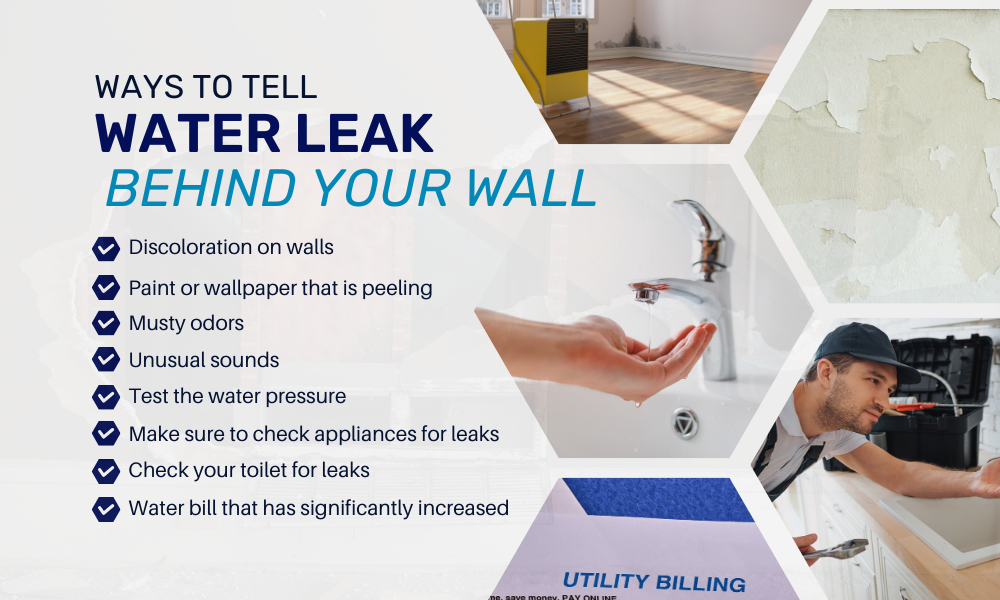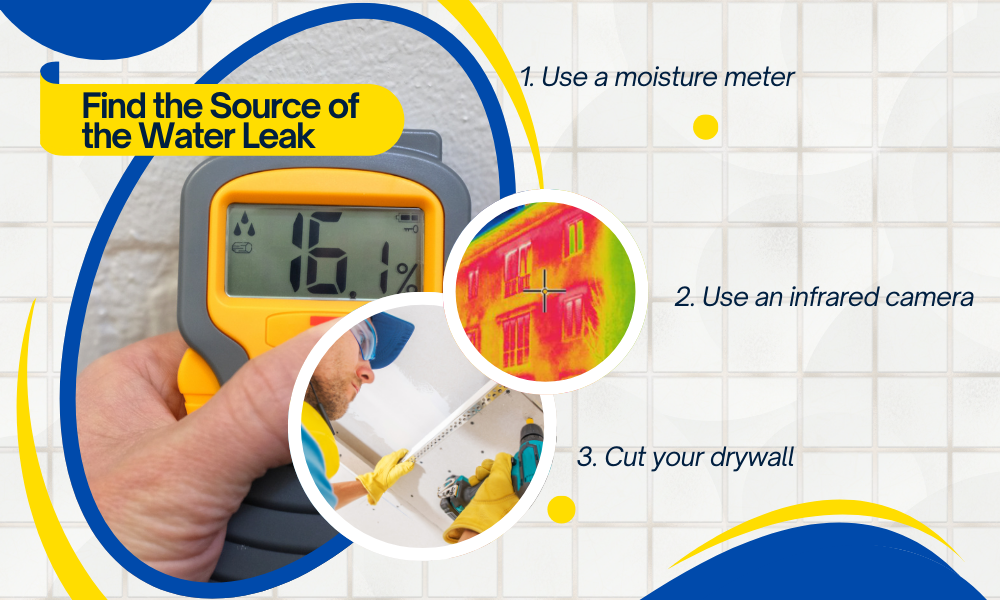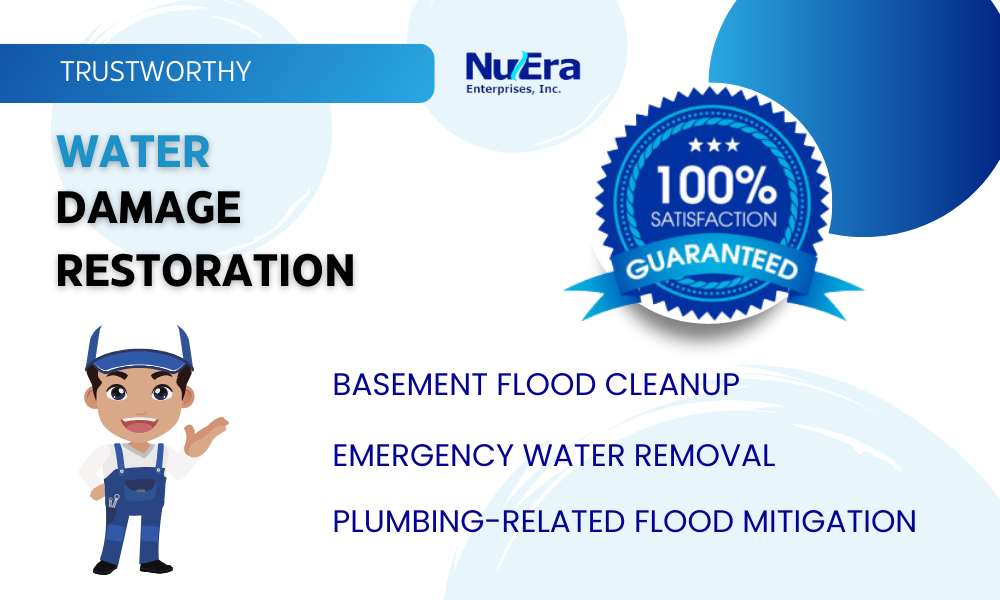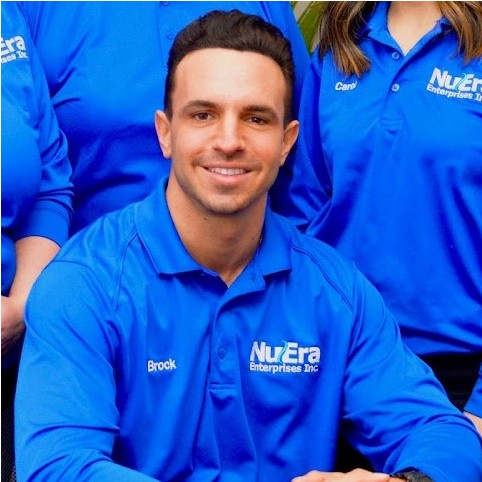Proper maintenance of your home is of utmost importance. It ensures the structural integrity, safety, curb appeal, and value retention of your property. The key aspect in home maintenance is identifying and addressing hidden water leaks promptly. Neglecting them can lead to significant property damage and mold growth. Safeguard your investment by prioritizing regular maintenance and timely repairs.
There are various ways you can tell if you have a water leak in your home. It is important to recognize signs of a leak and react quickly so the issue can be remediated, and you can prevent significant damage.
Ways to Tell if You Have a Water Leak in Your Wall

You should always be looking out for any changes to your walls and if you do notice any of these signs of a water leak, make sure to call the water restoration professionals to fix it so you can avoid additional damage. Here are clear signs you have a water leak in your wall:
- Discoloration on walls:
If you notice any discoloration or staining on the walls, you may have a slow drip that has been there for some time and is now showing. You should never ignore discoloration on your walls as it may be a water leak, however, it could also be from other issues such as bad ventilation or humidity.
- Paint or wallpaper that is peeling:
Peeling of wallpaper or paint happens due to high moisture levels that have been high for too long. You may also notice bulging, discoloration, and other signs of water damage. It is very important to react to these signs and have a professional inspect your property. If you leave this issue unattended, you may end up with further damage and very costly repairs.
- Musty odors:
If you notice a bad, musty odor in a particular area of your home, you may have a water leak. This smell happens because of moisture that seeps into the walls to create an environment for mold and mildew to grow. Even before you notice the smell, the indoor air quality may have been compromised. Mold spores spread quickly through your air ducts and can cause respiratory issues, skin rashes, and other health problems. Therefore, it is important once you invest in the plumbing repair, that you invest in air quality testing and remediate that issue as well.
- Unusual sounds:
If you notice strange sounds in a particular area of the home such as tapping, humming, or thumping and even dripping, you may have a water leak, especially if it is only in a certain area of the wall. It is important that you contact a water remediation professional so they can figure out the cause. If you do let the issue, go, you may end up with costly repairs later.
- Test the water pressure:
A great way to find a leak in your home is to test the water pressure. Make sure to shut off all the faucets and then measure the water pressure. If the pressure is lower than normal, you may have a water leak.
- Make sure to check appliances for leaks:
Unplug your appliances from the outlet and check if they have a leak. If there is a faulty appliance, it might drip slowly.
- Check your toilet for leaks:
Check to see if there is any water leaking from your toilets by dropping a little food coloring into the tank overnight. If there’s color in the bowl without flushing by morning, you may have a leaky toilet.
- Water bill that has significantly increased:
If you notice an extreme change in your water bill such as a large spike and you cannot figure out a reason for it, you may have a water leak. There are many reasons why water bills can change such as change in usage or water rates. However, if you do not have an explanation, it may mean that you have an undetected water leak in your home. The best way to figure out if you have a water leak in your home if your water bill has spiked is to have an expert look at the plumbing system. They will be able to let you know if there is an issue and how to repair it.
How to Find the Source of the Water Leak in Your Walls

It is always best to hire a professional if you find any signs of a water leak, but there are some ways to do this on your own as well. Here are a few:
1. Use a moisture meter:
This is a great tool to find a water leak in your home. It will measure the moisture level in your walls, floors, and ceilings. If you have normal drywall, concrete, or another material, the reading should be less than one percent. Anything that is higher than that is a sign of a water leak. You can purchase a moisture meter from a local hardware store or online. However, do keep in mind that this device may not be as accurate as the ones that the professionals use.
2. Use an infrared camera:
This tool will help you diagnose a water leak. This device detects changes in temperature which will help figure out the source of a leak. The same device can be used to find mold growth and other signs of water damage. You can purchase or rent this device from a local hardware store, or you can hire a professional that already has one. Always make sure to read the instructions so you know how to properly use them.
3. Cut your drywall:
Another simple way to see if you have a water leak is to cut into the drywall. This is a risky move and should only be done if you have the knowledge to do so. It is always best to have professionals assess the issue with the water leak and help you remediate it without cutting the drywall.
Professional Water Leak Help

Water leaks can be damaging and costly to fix. It is crucial to recognize the signs of a water leak and remediate the damage it causes quickly and efficiently. If you notice any of the above-mentioned signs of a water leak, make sure to reach out to a water damage restoration professional so they can advise you on the best way to remediate the issue. They will inspect your property, then create a remediation plan to fix your water leak. Highly trained technicians will make sure to complete a proper water mitigation process to remove all water damage from your property so you can avoid further damage and mold.

CEO of NuEra Restoration and Remodeling – certified by IICRC and specializes in residential and commercial building restoration, carpet cleaning, painting, and remodeling – 10+ years of experience in business and restoration with strong leadership skills.

